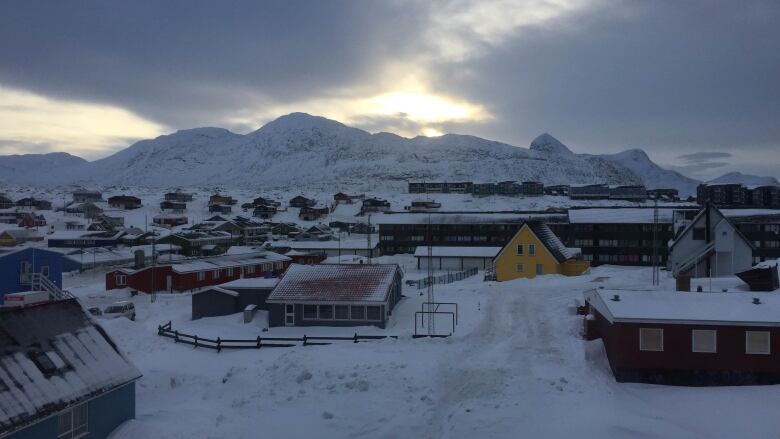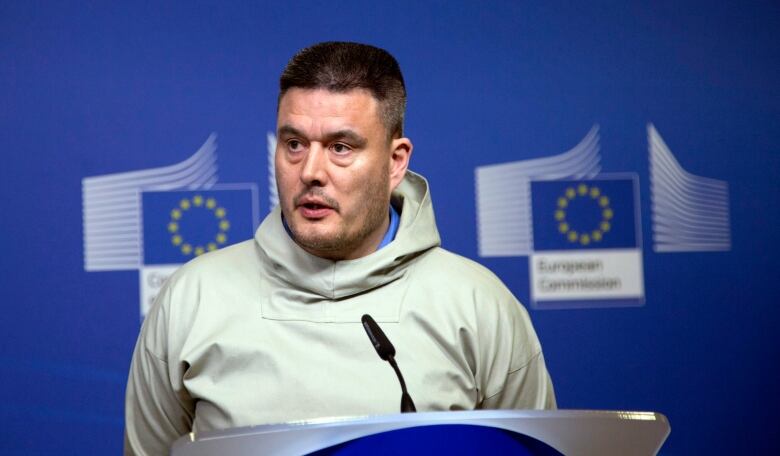In Greenland, some suggest the unthinkable: rejoin the EU
Greenland quit the then-EC in 1985 to safeguard their fish industry

Three decades after Greenland exited what is now the European Union, some of its politicians and business leaders say the vast Arctic territory should consider rejoining because of its slowness to diversify the economy away from fish.
Britain's referendum on June 23 about whether to stay in or quit the EU has revived debate about the future of Greenland, which in 1985 became the only member so far to leave after a 53-47 percent referendum vote.
A collapse in global commodity prices has put on hold Greenland's hopes of enticing billions of dollars of foreign investment from China and other nations to bolster its economy with projects such as in gold, rare earths, iron ore and oil.
"We should at least look into the option of rejoining," said Michael Rosing, a member of parliament for the Democrats, a junior member of the ruling coalition with four of 31 seats in parliament.
Membership may entice investment as economy diversifies
Rosing said EU membership might be the best way to entice investment, for instance in infrastructure for ports and airports, as a step towards diversifying the fish-dependent economy of 56,000 people.
Greenland is a part of the Kingdom of Denmark with self-government over domestic affairs while leaving defence and foreign policy to Copenhagen. It is one of 25 overseas countries and territories, including the Cayman Islands and French Polynesia, that have partnerships with the EU without being members.
Greenlanders still have one foot in the EU because they are all citizens of Denmark despite pulling out of the European Community, the EU's forerunner.
The North Atlantic island uses the Danish crown and has free trade with the EU under a treaty which, crucially for Greenland, gave it control of fishing grounds rich in prawns and halibut. Fisheries still account for about 90 percent of exports.
Prime Minister Kim Kielsen and many Greenlanders want even more distance to the EU by seeking full independence from Denmark, a process he says will be achieved by "future generations" after an expansion of the economy into new areas such as mining, industry and tourism.

"The current situation is good," Kielsen said of ties to the European Union. "We have a very good partnership with the EU currently in terms of education, fisheries and research."
Henrik Leth, chairman of Greenland's biggest private company Polar Seafood and of the Danish Business Association, said a planned U.S.-EU free trade agreement could erase Greenland's advantage of duty free access to the EU.
"What was worth a lot in 1985 is going to gradually disappear," he said. "We have to investigate whether it would be a good thing to join the EU."
'We will rule our own waters'
European Commission sources played down the threat of the U.S.-EU trade deal, saying Greenland exports prawns to the EU worth more than 450 million euros ($649 million) a year. By contrast, the EU buys U.S. prawns worth just 1 million euros.
Greenland's KNAPK association of fishermen and hunters opposes talk of rejoining, fearing Brussels would demand access to fishing grounds and oppose its hunts of seals and whales.
"We will rule our own waters," said Tonnes Berthelsen, deputy head of KNAPK.
Ditte Sorknaes, chief executive of the Great Greenland company which produces seal skins used in everything from shoes to jackets, says exports to Europe have been hard hit by a plunge in demand linked to allegations of cruelty toward seals.
"Without a doubt it would have been easier" to put Greenland's case if it were in the EU, she said. The European Union provides about 31 million euros ($44.71 million) a year to Greenland, mainly to promote education, and 16 million euros a year to help develop fisheries.
Since breaking from the EU, Greenland has relied heavily on cash from Denmark, currently a grant of 3.6 billion crowns ($700 million) a year.












_(720p).jpg)


 OFFICIAL HD MUSIC VIDEO.jpg)
.jpg)



























































































